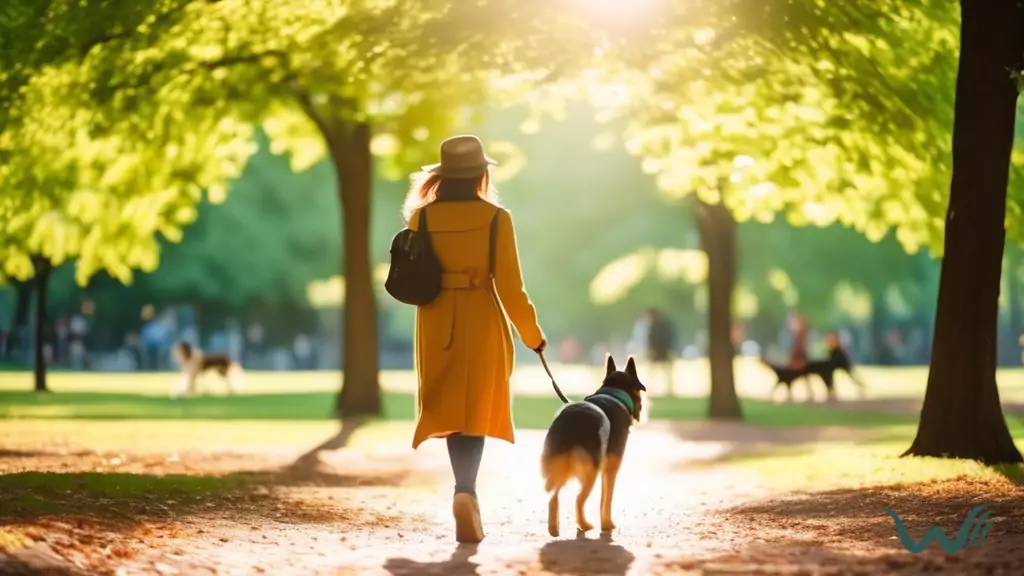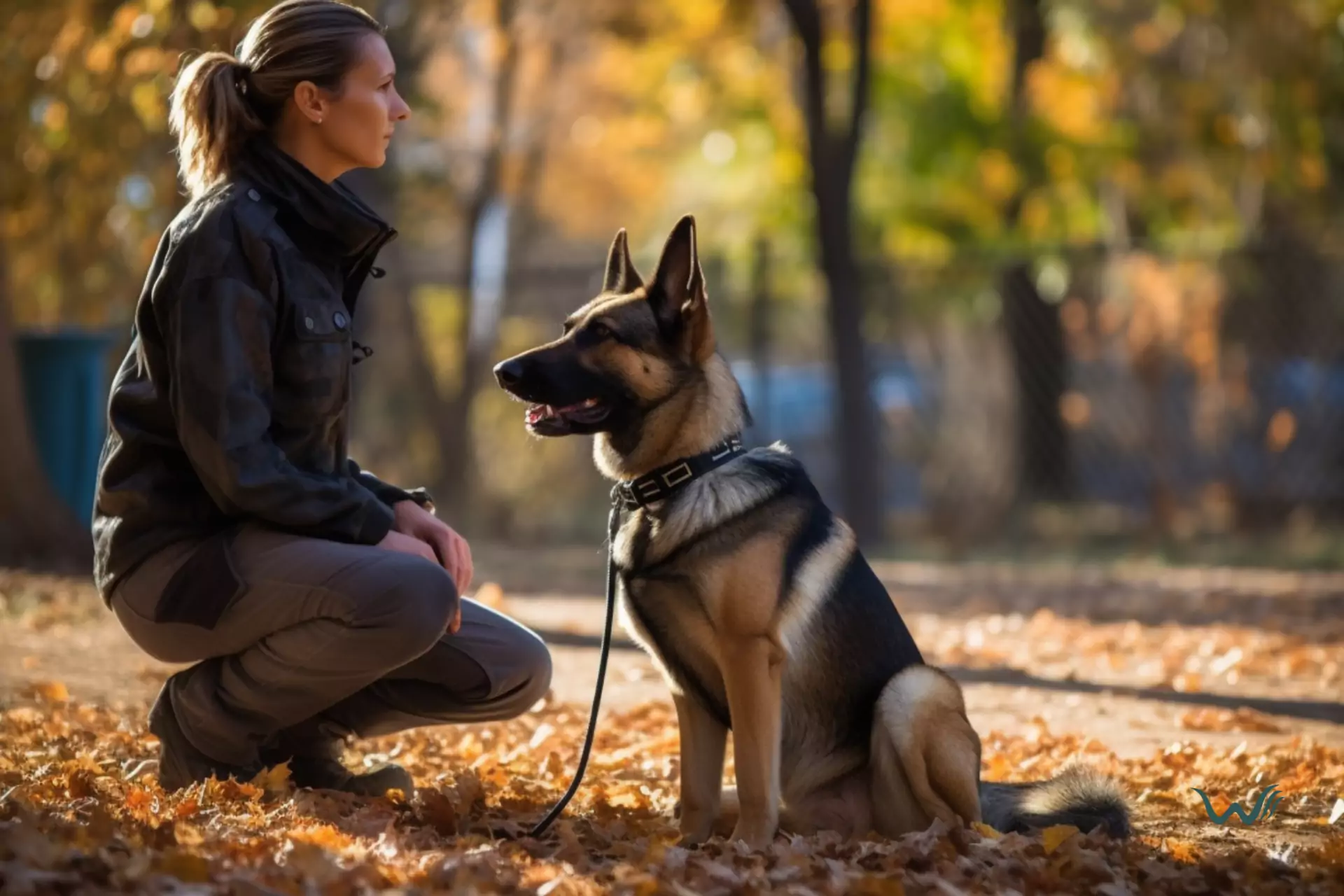

Dealing With Dog Socialization And Barking Issues
by Tayyaba Amir
Last updated: April 18, 2024
Verified and Approved by:
Angela Morris,
MSW, LCSW
Fact Checked

If you have a furry friend who struggles with socialization and barking issues, you’re not alone. It can be challenging to help your dog feel comfortable in new situations and to manage their barking behavior effectively. But fear not, as some strategies and techniques can help you navigate these challenges and create a happier, more well-adjusted pup.
In this article, we will explore the importance of dog socialization and how to introduce your dog to new situations in a positive way. We will also discuss common barking behaviors in dogs and provide training techniques to address them. Remember, with patience, consistency, and a willingness to learn, you can help your dog overcome their socialization and barking issues for a more harmonious relationship with your furry companion.
Key Takeaways
- Understanding dog socialization is important for addressing barking issues effectively
- Introducing your dog to new situations gradually and positively can help with socialization
- Implementing training techniques focused on socialization can improve your dog’s behavior
- Seeking professional help for behavioral issues is recommended if the barking problems persist
Understanding Dog Socialization
Just as a flower needs the sun to bloom, understanding dog socialization is essential for addressing barking issues. Your furry companion thrives on social interactions with other dogs and humans. By comprehending the intricacies of dog socialization, you can create a harmonious environment that promotes positive behavior and reduces excessive barking.
Remember, your dog looks up to you as their leader, and by understanding their social needs, you can guide them towards better communication and interaction skills. When you take the time to understand your dog’s socialization needs, you’re not only helping them but also fostering a deeper connection between the two of you.
Dogs are social animals by nature, and by providing them with the right social experiences, you’re enriching their lives and strengthening your bond. So, next time your furry friend starts barking excessively, think about their socialization needs and how you can address them to create a more peaceful and happy environment for both of you.
Tips for Introducing Your Dog to New Situations
When introducing your furry friend to new situations, it’s important to start slowly and gradually increase exposure to different environments. Remember, your dog may feel overwhelmed or anxious when faced with something unfamiliar, so take it one step at a time.
Here are some tips to help you introduce your dog to new situations:
- Start with short, positive interactions
- Use treats and praise to reinforce good behavior
- Monitor your dog’s body language for signs of stress
- Stay calm and patient throughout the process
- Gradually increase the difficulty of the situations as your dog becomes more comfortable
By following these tips and being mindful of your dog’s reactions, you can help them adjust to new situations in a positive and stress-free way.
Addressing Barking Behavior
Addressing barking behavior can be as challenging as untangling a knot of yarn, but with patience and consistency, progress can be made. Barking is a form of communication for dogs, so it’s essential to understand why your dog is barking before addressing the behavior. Whether it’s due to boredom, fear, territorial instincts, or simply seeking attention, identifying the root cause is the first step towards finding a solution.
| Tip | Description |
|---|---|
| Understand Triggers | Identify what triggers your dog’s barking to address the underlying cause effectively. |
| Consistent Training | Consistency is key in training your dog to reduce barking behavior and reinforce positive habits. |
| Provide Mental Stimulation | Engage your dog with interactive toys and activities to keep them mentally stimulated and occupied. |
| Seek Professional Help | If the barking behavior persists, seek guidance from a professional dog trainer or behaviorist. |
By being proactive and understanding your dog’s needs, you can effectively address barking behavior and create a harmonious environment for both you and your furry companion. Remember, it’s a journey that requires patience and dedication, but the rewards of a well-behaved and happy dog are worth the effort.
Training Techniques for Socialization
Utilizing positive reinforcement techniques can greatly improve your pup’s ability to interact with other animals and people. By incorporating these training methods into your daily routine, you can help your furry friend become more confident and comfortable in social situations.
Here are five key strategies to aid in your dog’s socialization journey:
- Consistent practice: Regularly expose your dog to different environments and situations to help them adapt and feel at ease.
- Encouraging positive interactions: Reward your dog with treats and praise when they exhibit friendly behavior towards other animals or people.
- Patience and understanding: Approach socialization with a calm and patient attitude, understanding that every dog progresses at their own pace.
- Seeking professional help: Don’t hesitate to consult a professional dog trainer or behaviorist for guidance and support in addressing socialization challenges.
- Creating a safe space: Establish a safe and secure environment for your dog to retreat to when feeling overwhelmed, allowing them to take breaks as needed.
By implementing these techniques and showing your pup love and understanding, you can help them develop the necessary social skills to thrive in various social settings. Your dedication and effort in training will not only benefit your dog but also strengthen the bond between you both.
Seeking Professional Help for Behavioral Issues
If you’re struggling to improve your furry friend’s behavior, consider seeking professional assistance for expert guidance. For example, a family in our neighborhood had great success with a dog behaviorist who helped their pup overcome excessive barking through targeted training sessions. These professionals have the knowledge and experience to identify the root cause of your dog’s behavioral issues and create a customized plan to address them effectively. By enlisting their help, you’re not only investing in your pet’s well-being but also in the harmony of your household.
Here is a table to help you understand the benefits of seeking professional help for your dog’s behavioral issues:
| Benefits | Description |
|---|---|
| Expert Guidance | Receive advice and support from experienced professionals who specialize in dog behavior. |
| Tailored Solutions | Get a personalized training plan designed specifically for your dog’s unique needs and challenges. |
| Improved Communication | Learn how to better communicate with your furry friend to strengthen your bond and reduce behavioral issues. |
| Long-Term Results | Achieve lasting behavioral changes that will benefit both your dog and your household in the long run. |
By taking the step to seek professional help, you are demonstrating your commitment to your dog’s well-being and happiness. Remember, it’s okay to ask for help when needed, and the rewards of a well-behaved and socialized dog are well worth the investment.
Frequently Asked Questions
Can a dog ever be too old to learn socialization skills?
You’re never too old to learn socialization skills! Dogs can continue to grow and adapt throughout their lives. With patience and positive reinforcement, any dog, regardless of age, can improve their social skills.
How can I help my dog overcome fear or aggression towards other dogs?
Struggling with your dog’s fear or aggression towards other dogs? Start by slowly introducing positive interactions, using treats or toys to create positive associations. Consistent training and patience will help your pup overcome these challenges.
Is it possible for a dog to become too socialized and overly dependent on human interaction?
Yes, it is possible for a dog to become overly socialized and dependent on human interaction. Just like humans, dogs need a healthy balance of socialization with other dogs and independence to thrive.
What are some signs that my dog’s barking may be a result of anxiety or stress?
If your dog’s barking is excessive, repetitive, or occurs in new situations, they may be experiencing anxiety or stress. Look for other signs like pacing, panting, or avoiding eye contact. Consulting a vet or behaviorist is key.
Are there any specific breeds that may require different socialization techniques compared to others?
Certain breeds, like herding or guardian dogs, may need special socialization techniques due to their innate instincts. Consistent training, exposure to various environments, and positive reinforcement are key for successful socialization.
Certify Your Emotional Support Animal Today

Why You Can Rely on Us?
At Wellness Wag, we believe your pet deserves care rooted in both science and compassion. Each article is carefully researched, written in clear language for pet owners, and then reviewed by qualified professionals to ensure the information is evidence-based, current, and practical for real-life care. Our goal is to help you feel confident in making informed decisions about your pet’s health and well-being.
Reviewed by
Angela Morris, MSW, LCSW
Angela is a licensed clinical social worker with 20 years of experience in patient advocacy and community mental health. She has assisted numerous clients with ESA evaluations and brings a deep understanding of disability accommodations, ensuring that all information is accurate, supportive, and practical.

Written by :
Tayyaba Amir
Last Updated :
April 18, 2024










